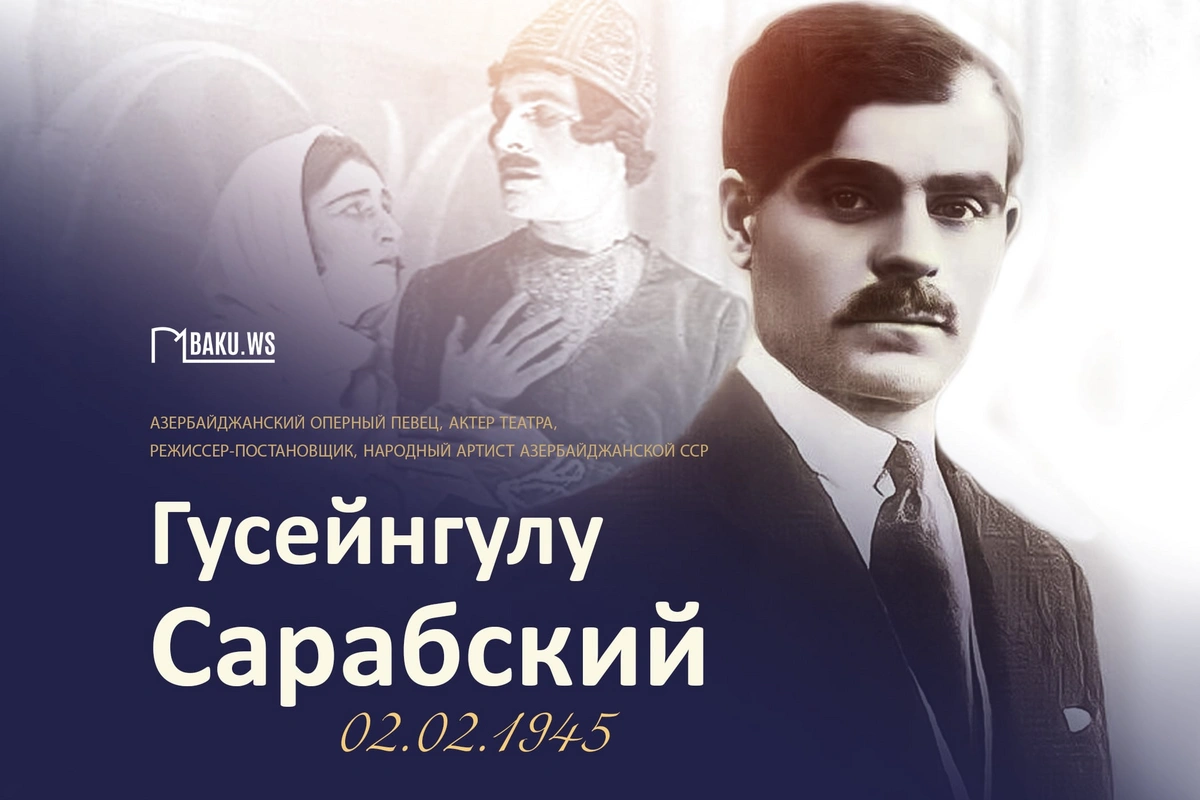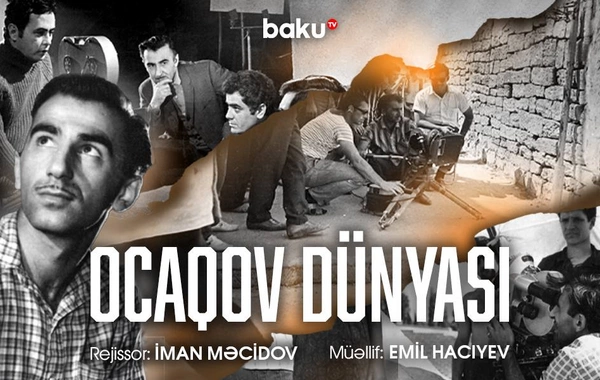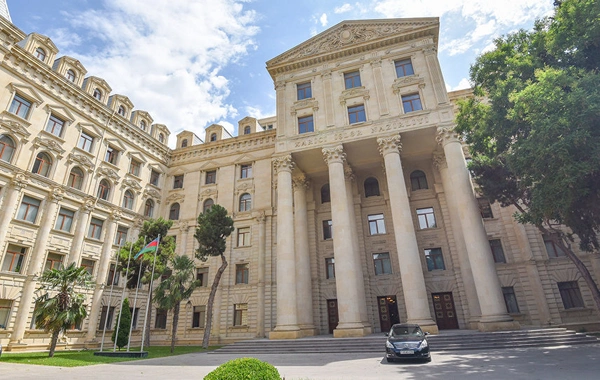Today is the remembrance day of the great Majnun of the Azerbaijani stage

02
Feb
2025
11:28
Today is the day of remembrance of the famous Azerbaijani theater figure, actor, director, and teacher Huseyngulu Malik oglu Sarabski (Rzayev). He was the first and most famous performer of the role of Majnun in Uzeyir Hajibeyov's opera "Leyli and Majnun." Huseyngulu Sarabski was born on March 20, 1879, in Baku, where he lived and worked. His childhood and youth were filled with hardships. Young Huseyngulu earned his living working in a forge and as a stonemason. At the same time, he attended free Russian language courses for the poor, sponsored by oil millionaire and philanthropist Zeynalabdin Tagiyev. In 1891, 12-year-old Huseyngulu first saw a theatrical performance - a production by Azerbaijani amateur actors called "Khan Sarabski," based on Mirza Fatali Akhundov's play "Vizier of the Lankaran Khanate." Impressed by the performance, the boy later chose the stage name "Sarabski." Sarabski's desire to perform songs emerged in his childhood. His art originated from mugham and was nurtured by it. His first lessons were folk songs performed at religious events. He had a charming and beautiful voice, and rare musical memory. Sarabski's first stage experience was the role of Rasul in Nariman Narimanov's play "Shamdan-bey." He later performed in several productions based on works by Azerbaijani and European authors, but his creative talent was especially appreciated after his role in Heine's "Almansor." Composer Uzeyir Hajibeyov noticed his excellent performance of the mugham "Hijaz-i arabi" and chose him for the leading role in the premiere of his opera "Leyli and Majnun" in 1908. The first performance took place on January 12, 1908, in Baku at H. Z. Tagiyev's theater. Kurban Primov played the tar, Sarabski performed as Majnun, and Hajibeyov himself played violin in the orchestra. The role of Leyli was performed by a man. The role of Majnun brought Sarabski such success that he performed it about 400 times over the next 30 years, performing in weekly productions in Baku and on tours in Tiflis, Elizavetpol, Irevan, Vladikavkaz, Tabriz, Rasht, and Tehran. Later, Sarabski performed leading roles in operas "Shah Ismail" by Muslim Magomayev, "Ashig Garib" by Zulfugar Hajibeyov, and operettas by Uzeyir Hajibeyov such as "O olmasın, bu olsun" and "Arshin mal alan." From 1910, Sarabski worked as a director, staging plays like "Rustam and Zohrab" (1910), "Husband and Wife" (1910), "Arshin mal alan" (1913) by Uzeyir Hajibeyov, "The Dead" (1916) by Jalil Mammadguluzadeh, and others. He also wrote several plays ("Ignorance," "Who Seeks Shall Find," "What You Sow Is What You Reap") and songs ("Mugan," "Daglar"). In 1923-1926, Sarabski founded a theater troupe in Shamakhi and a dramatic theater in Agdam. In 1936-1937, Sarabski wrote the book "Old Baku," which included historical and ethnographic information along with descriptions of the city's rich musical traditions. From 1940-1942, Sarabski taught opera and mugham at the Azerbaijan State Conservatory. His students included famous singers like Sara Gadimova and Shovkat Alekperova. Sarabski died in 1945. Before his death, he wished to see opera singer Hagigat Rzayeva, with whom he had performed on stage for 15 years, and asked her to perform an aria from "Leyli and Majnun."
This news edited with AI
Similar News
The Baku TV film won Qızıl Pəri 2025
Documentary film Ocaqov dünyası ("Ocagov's World"), created by one of Azerbaijan's leading media institutions Baku TV, has been awarded one of the country's mos...



 Azərbaycanca
Azərbaycanca  По-русски
По-русски  English
English 







